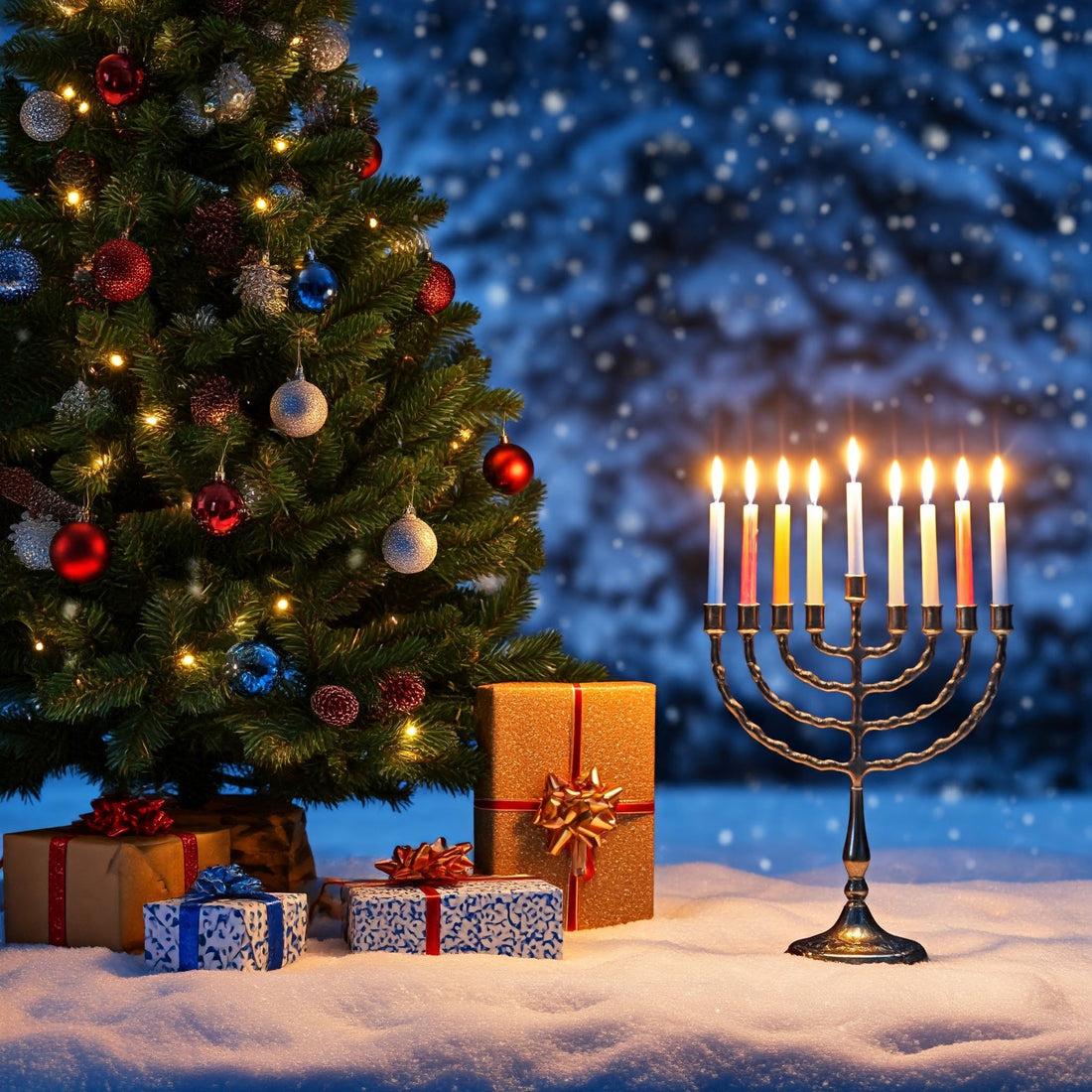
When Stars Align: The Rare Convergence of Christmas and Hanukkah
Share
Hello, holiday enthusiasts! Ever wonder why Christmas and Hanukkah only occasionally overlap, turning our calendars into a festive playground known affectionately as Chrismukkah? It's not just a matter of mere chance but a fascinating interplay of different calendar systems.
This rare overlapping of Hanukkah and Christmas offers a unique opportunity for interfaith families and communities to celebrate their traditions together. It’s a time of increased understanding and shared joy, where the blending of customs can create new, meaningful traditions.
Let’s delve into the celestial scheduling that dictates when we get to celebrate this delightful holiday mash-up.
Understanding the Calendars First, a quick primer on the calendars in question:
- The Gregorian Calendar: Used predominantly across the world for civil purposes, this solar calendar fixes Christmas on December 25th each year.
- The Hebrew Calendar: A lunisolar calendar, meaning it’s based on both lunar months and solar years. Hanukkah, known as the Festival of Lights, starts on the 25th of Kislev, a month whose date shifts relative to the Gregorian calendar.
Why the Holidays Rarely Sync
- Lunar vs. Solar: The Hebrew calendar’s months begin with the new moon, with the year lasting approximately 354 days. This is about 11 days shorter than the solar year used by the Gregorian calendar. To correct this drift and ensure that festivals still occur in their appropriate seasons (such as Passover in spring), a leap month is added to the Hebrew calendar in a 19-year cycle.
- Fixed vs. Floating: Christmas’ fixed date means it doesn’t move, whereas Hanukkah floats through late November to late December. The addition of the leap month in the Hebrew calendar every two to three years keeps Hanukkah from drifting too far but also causes it to jump around relative to the Gregorian calendar.
Recent and Upcoming Overlaps
We've seen years where you could light a menorah and trim a Christmas tree simultaneously without batting an eye. For instance, in 2016, Hanukkah began on Christmas Eve. The next notable overlaps where Hanukkah and Christmas will coincide include:
- 2024: The first night of Hanukkah coincides with Christmas.
- 2031: Hanukkah begins on Christmas Day.
- 2038: Hanukkah begins on Christmas Eve.
- 2045: Hanukkah begins on Christmas Day.
- 2052: Hanukkah begins on Christmas Eve.
The rare convergence of Christmas and Hanukkah is a beautiful reminder of our diverse and interconnected world. Whether you’re enjoying latkes and ham, spinning the dreidel, or singing carols, these moments remind us of the joy in unity and the beauty of diverse traditions coming together.
